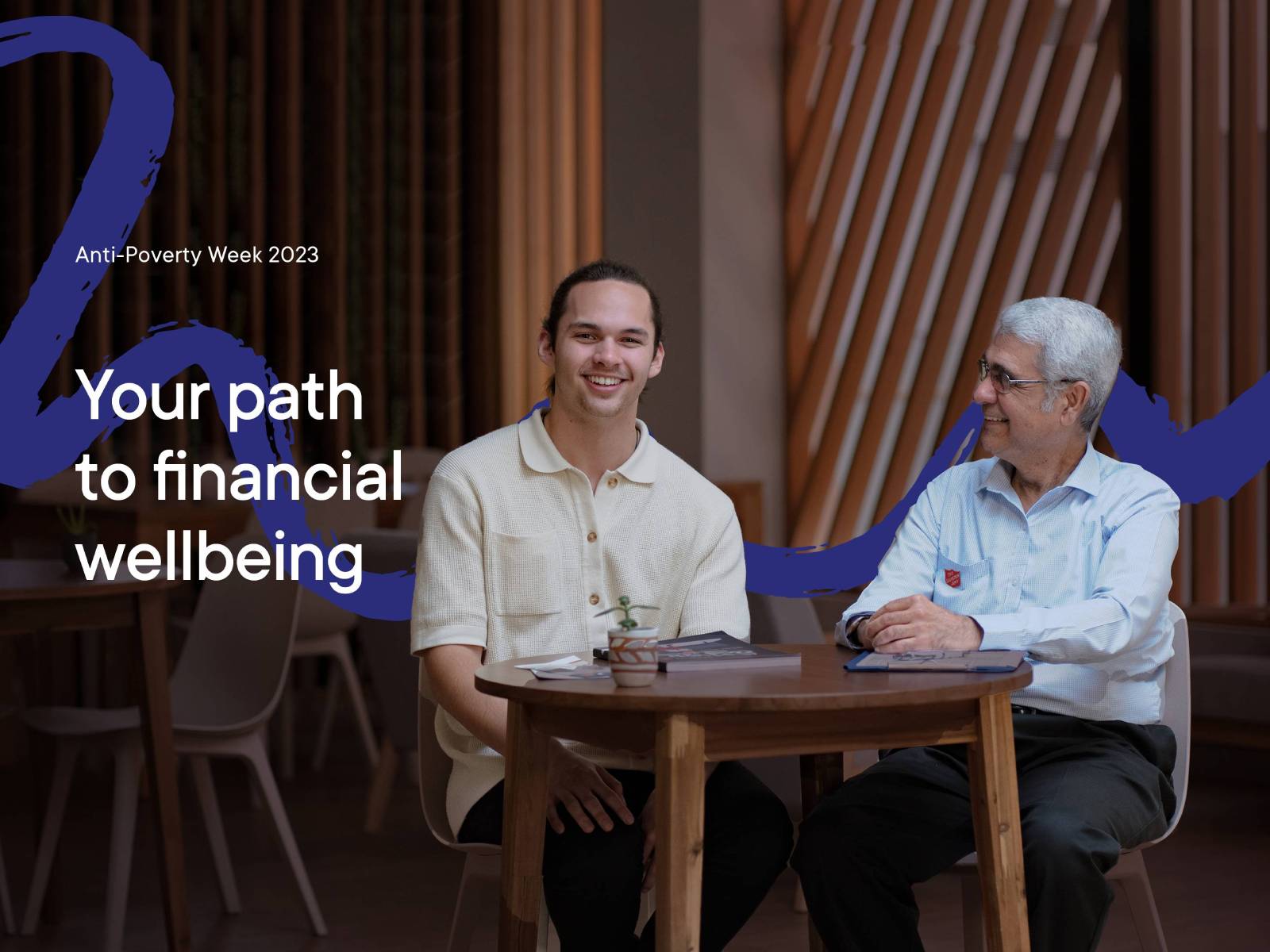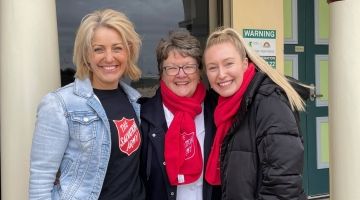Anti Poverty Week
Know your true worth — and experience financial wellbeing
It can be hard to think positive thoughts when the weekly grocery shop is getting more expensive, the bills are piling up and the savings account is shrinking to non-existent. It’s normal to start thinking your financial difficulties are part of who you are.
But we believe you are worth more than your money. Your finances are a tool for your life — they are not who you are. We believe in good for you and are here to help you believe in good for yourself, too. You have the power to make a change and set yourself onto a path that leads to financial wellbeing.
It can start with one simple step, and we are here to support you.
We can help you get started on your path to financial wellbeing
Getting your finances on track can feel overwhelming. It can be hard to know where to start. The good news is The Salvation Army’s Moneycare service is here to guide you. We have a free and confidential financial counselling service, as well as self-paced resources available online.
A great place to start is by reviewing your self-talk and mindset around money.

Activity: Get a pen and paper or open the notes app on your phone. Write an answer to these two questions:
- What do you do well in your money life? For instance: I always pay my bills on time; I shop around for the best prices.
- What one area would you like to improve in your money life? For instance: I’d like to grow my savings; I’d like to pay off my buy now pay later your debt.
We can support you with the action you can take. Download free eBook for a step-by-step guide to becoming the boss of your money and experiencing financial wellbeing.
Top tips for financial wellbeing

Get financial support today
If you’re facing an immediate problem with money and need urgent financial assistance, such as food for the week or support with your electricity bill, we can help.
We also have a team of financial counsellors who can help you with debt repayments, money management and no interest loans.
About Anti Poverty Week
Anti-Poverty Week (15-21 October) is a national campaign, supported by a wide range of Australian charities, working to raise awareness of the financial struggles impacting many Australians.
The Salvation Army is committed to helping people overcome financial stress and find hope for the future. We believe that taking preventative action around money problems early can help avoid deeper poverty and related issues such as homelessness.
You can help people living in poverty.
About The Salvation Army financial services
We believe that everyone deserves to live a great, full life — one filled with joy, purpose and overall wellbeing. Our Salvation Army financial services are here to achieve that with you.
We can help you if you’re experiencing difficulties with your finances and need immediate support. We can also help with debt such as credit cards and buy now pay later products, tips for managing your money and strategies to build resilience for the future. Whoever you call, you can expect a confidential, compassionate conversation that helps set you up for a life of wellbeing.
“[Jesus] came so [we] might have life, a great full life.” — (John 10:10, NLV Bible)









